Corporate Social Responsibility - A Case Study - Bonnie Babes Foundation
 Tuesday, September 1, 2009 at 10:00AM
Tuesday, September 1, 2009 at 10:00AM 
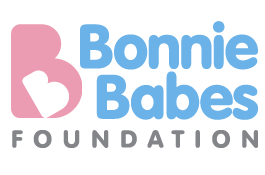 As businesses, corporates and organisations learn more about the benefits of Corporate Social Responsibility, The Bonnie Babes Foundation provides one example of how corporates and charities can work together.
As businesses, corporates and organisations learn more about the benefits of Corporate Social Responsibility, The Bonnie Babes Foundation provides one example of how corporates and charities can work together.
Rachel Stanfield-Porter founded the Bonnie Babes Foundation in 1994. They are a national charity with branches in each state.
The Bonnie Babes Foundation exists to
• provide medical equipment to hospitals for premature babies struggling for life in
intensive care,
• assist vital medical research projects into pregnancy loss and complications to women’s
health during and following pregnancy,
• provide education and training for health professionals,
• provide 24 hour, 7 day per week free family crisis phone lines for those who have lost a
baby through miscarriage, stillbirth or premature birth,
• provide health nutrition and wellness advice for women prior to and during pregnancy,
• provide support for families with infertility issues and assists with counselling relating
to infertility,
• provide support for babies born with abnormalities,
• support women who develop pre-eclampsia and other medical conditions during
pregnancy, and
• provide extensive public awareness and education about pregnancy loss infertility issues
and prematurely born babies.
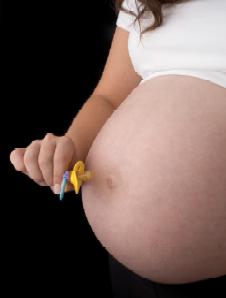
Compare these statistics:
Australian road fatalities = 1,400 pa
Babies lost through stillbirth each year = 2000 pa
Total of all cancer deaths = 36,000 pa
Total of all deaths due to miscarriage and stillbirth = over 70,000 pa
$215 million spent on breast cancer research in 2000. The number of women diagnosed with breast cancer in Australia was 12,126 in 2004
The Bonnie Babes Foundation counsels and supports 17,000 families each year.
Sudden Infant Deaths = 71 in 2007
1 in 10 babies are born prematurely (approx. 17,500 each year)
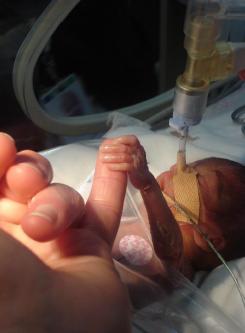
National Babies Day:
Saturday 19 September 2009 is National Babies Day, the major annual fundraising event for the Bonnie Babes Foundation (a non-profit charity organisation).
National Babies Day raises much needed funds to help decrease the loss of children every year in
Australia and provide a better quality of life for babies born prematurely struggling for survival
in intensive care.
A wide range of events are held across Australia during September to raise funds for the Bonnie
Babes Foundation.
Just like Mother’s Day or Fathers Day, National Babies Day offers an opportunity to celebrate the lives of healthy Australian babies while remembering those that have left us too soon.
Visit www.bbf.org.au to make a tax-deductible donation online or purchase the beautiful Little Feet Pin in Gold or Pewter for just $5 + P&H
Shop at Target on 19 September when 5% of proceeds from all kids wear purchases will be donated to the Bonnie Babes Foundation.
Or, get those odd jobs around the house completed by Hire-a-Hubby in the week leading up the National Babies Day, and Hire-a-Hubby will donate $30 to support the Bonnie Babes Foundation.
Baby Kingdom are donating a percentage of all sales in September leading up to National Babies Day.
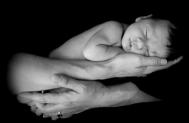
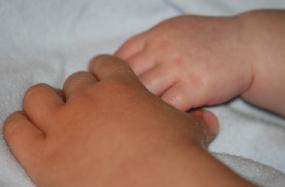
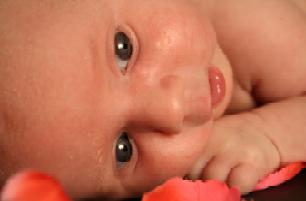

There are many other ways you and your organisation can engage with the Bonnie Babes Foundation, including 'in-kind support'
Here are three of the medical projects they are currently looking for investors to support:
The following projects have just been rated the highest from the medical board they are three projects we would really like to support. They are exceptionally worthy.
1. DNA damage and recurrent pregnancy loss. Funds requested $20,000
Recurrent miscarriage affects approximately 1% of couples during their reproductive lives, and the recurrent miscarriage rate is approximately 3-5%. [1] At present recurrent miscarriage and infertility are of increasing concern in most developed countries. [2] one of the major problems facing clinicians working with patients suffering recurrent miscarriages is that there is seldom a single obvious cause identified. In recent years, increasing efforts have been made to describe causes of recurrent miscarriage at the molecular level. DNA damage in the gametes (sperm and egg) can lead to developmental defects and pregnancy loss. In human cells, normal metabolic activities and environmental factors such as smoking and poor diet can cause DNA damage. Any cell that has accumulated a large amount of DNA damage cannot function. Although it has long been acknowledged that both male and female partners contribute to human reproductive success, the past 20 years have focussed on the importance of DNA damage in the male and successful pregnancy. There is substantial literature relating DNA damage in sperm with infertility and pregnancy loss, but very little research has examined this in the mother. It is not known if DNA damage in both the mother and father could be used to diagnose couples at risk of recurrent miscarriages. Therefore, this study aims to determine if increased DNA damage in both the mother’s and father’s blood is associated with recurrent miscarriages. If this is the case, larger studies will be undertaken, investigating the use of DNA damage markers as a predictive tool for couples who are at risk of recurrent miscarriages. This would allow possible interventions to reduce DNA damage before trying to conceive, or depending on age and additional risk factors, allow for immediate referral for assisted reproduction techniques.
2. Longterm follow up bereaved. Funds requested $21,000
Each week in Australia around 40 families experience the death of a baby due to stillbirth or neonatal death. Such losses can be highly traumatic for families and research consistently shows the potential for patients to experience extreme psychological distress. Some studies have shown that distress may continue for at least several years, but little is known about the longer-term impacts. This project offers a rare opportunity to follow up a cohort of 144 parents (both mothers and fathers) who experienced the death of an infants some 20 years ago to assess their psychological, social and physical health. By re-contacting these families 21-23 years after their loss, the study is uniquely paced to enhance knowledge and understanding of the long-term psychosocial and health impacts of pregnancy loss and the range of factors – including those relating to the period soon after the loss – that predict different outcomes. Such information has the potential to aid the development and provision of effective, appropriate and responsive support services for bereaved families.
3. Retinopathy of Prematurity: ‘Ray of Hope’ Funds requested $25,000
Retinopathy is the major cause of blindness in premature infants all over the world. Globally there are 1.4 million children who are born blind. The growing need to prevent the pathogenesis of Retinopathy of Prematurity has become ever more prevalent as research efforts are directed toward preventing further escalation of the disease to ensure the preterm infant will have a high quality of life with the gift of sight. It is the hope that by understanding the very early stages of Retinopathy of Prematurity we can improve the changes of developing new forms of treatment that target the earliest microvascular changes rather than waiting until the retina is invaded by numerous pathological, leaky new vessels as currently therapy dictates.
To learn more, please contact Debbie Chalmers:
Phone: (03) 9803 1800
Toll Free 1300 266 643
Email: enquiry@bbf.org.au


Reader Comments